

Articles
How To Become A HVAC Technician
Modified: October 20, 2024
Discover how long it takes to become an HVAC professional with our informative articles. Gain insights and find the right path for your career in the HVAC industry.
(Many of the links in this article redirect to a specific reviewed product. Your purchase of these products through affiliate links helps to generate commission for Storables.com, at no extra cost. Learn more)
Introduction
Becoming an HVAC (Heating, Ventilation, and Air Conditioning) technician can be a rewarding career choice. HVAC technicians play a crucial role in installing, repairing, and maintaining heating and cooling systems in residential and commercial buildings. With the increasing demand for energy-efficient and environmentally friendly HVAC systems, the need for skilled technicians is on the rise.
However, you may be wondering how long it takes to become an HVAC technician. The timeline for becoming an HVAC professional can vary depending on several factors, including the training and education path you choose and whether you pursue additional certifications.
In this article, we will provide an overview of the HVAC industry, discuss the various training and education requirements, delve into apprenticeship and trade school programs, explain the process of on-the-job training, and explore the certification and licensing necessary to become an HVAC technician. Additionally, we will examine the factors that can affect the time it takes to become a fully qualified HVAC professional.
Whether you’re considering a career change or just starting your journey in the HVAC field, understanding the time frame and requirements involved will help you make informed decisions and set realistic goals. So let’s dive in and explore the path to becoming an HVAC technician!
Key Takeaways:
- The path to becoming an HVAC technician can vary from 6 months to 5 years, depending on the chosen educational route, prior experience, and dedication. Continuous learning and professional development are crucial for success in this dynamic field.
- Factors such as educational path, availability of training, and personal learning pace influence the time frame for becoming an HVAC technician. Choosing the right path and committing to ongoing learning are essential for a rewarding career in the HVAC industry.
Read more: How To Become A BIM Technician
Overview of HVAC
HVAC stands for Heating, Ventilation, and Air Conditioning. It encompasses a range of systems and technologies that control the temperature, humidity, and air quality in residential and commercial buildings. HVAC technicians are responsible for the installation, maintenance, and repair of these systems.
Heating systems are designed to provide warmth during colder months. This includes furnaces, boilers, heat pumps, and radiant heating systems. Ventilation systems ensure the circulation of fresh air and the removal of indoor pollutants. This includes air ducts, exhaust fans, and air filtration systems. Air conditioning systems, on the other hand, keep spaces cool and comfortable during hot weather. This includes central air conditioning units, window units, and split-systems.
The role of an HVAC technician involves performing a range of tasks, such as installing heating and cooling equipment, inspecting electrical components, troubleshooting system issues, performing regular maintenance, and ensuring compliance with safety and environmental regulations.
In addition to technical skills, HVAC technicians need to have good communication skills to interact with customers and explain complex concepts in an easily understandable manner. They must also have problem-solving skills to diagnose issues and find solutions quickly and efficiently.
The demand for HVAC technicians is driven by the need for comfortable and energy-efficient living spaces. As the emphasis on energy efficiency and environmentally friendly practices grows, HVAC systems need to meet higher standards. This creates a demand for skilled professionals who can install and maintain these systems.
The HVAC industry offers good career prospects and opportunities for growth. The field is constantly evolving, with new technologies and systems being developed. This means that continuing education and staying updated with industry trends is crucial for HVAC technicians to remain competitive and provide the best service to their customers.
Now that we have a basic understanding of HVAC, let’s explore the training and education requirements to become an HVAC technician.
Training and Education Requirements
To become an HVAC technician, you will need to acquire the necessary training and education. While there are multiple paths you can take to enter the field, a combination of formal education and hands-on experience is typically required.
An essential step in becoming an HVAC technician is obtaining a high school diploma or equivalent. A solid foundation in math, physics, and technical subjects such as electronics and mechanical systems can be beneficial for understanding the concepts and principles of HVAC technology.
Once you have a high school diploma, you can choose from various training programs and educational paths to pursue your career in HVAC:
- Apprenticeship Programs: Apprenticeships are a popular choice for aspiring HVAC technicians. These programs typically last 3 to 5 years and combine on-the-job training with classroom instruction. Apprenticeships allow you to learn directly from experienced professionals while earning a wage. During the program, you will gain practical skills, technical knowledge, and valuable hands-on experience.
- Trade School Programs: Trade schools offer HVAC programs that can be completed in a shorter time frame compared to apprenticeships. These programs typically range from 6 months to 2 years and focus on providing comprehensive HVAC training. Trade schools often offer a mix of classroom instruction and practical hands-on training in simulated environments. Upon completion, you will receive a diploma or certificate that demonstrates your competency in HVAC systems.
- On-The-Job Training: Some individuals may start their HVAC careers by gaining entry-level positions in the industry. In these cases, you can learn on-the-job, acquiring skills and knowledge through hands-on experience and mentorship from experienced technicians. This approach may take longer to become fully qualified but can be a viable option for those who prefer a more practical learning environment.
During your training and education, you will cover various topics related to HVAC systems, including electrical systems, refrigeration, ventilation, controls, safety protocols, and troubleshooting techniques. It’s important to choose a reputable institution or apprenticeship program that provides a comprehensive curriculum and hands-on training to ensure you acquire the necessary skills for a successful HVAC career.
Keep in mind that while formal education and training are important, HVAC technicians also require continuous learning to stay updated with new technologies, regulations, and industry best practices. This ongoing education can be achieved through workshops, seminars, manufacturer training programs, and industry certifications, which we will explore in more detail later in this article.
Now that we’ve covered the training and education requirements, let’s delve into apprenticeship programs and their significance in becoming an HVAC technician.
Apprenticeship Programs
Apprenticeship programs are a popular and highly regarded option for individuals pursuing a career as an HVAC technician. These programs provide a combination of on-the-job training and classroom instruction, allowing apprentices to gain valuable hands-on experience while learning the technical skills required for the trade.
The duration of apprenticeship programs can vary, typically ranging from 3 to 5 years. During this time, apprentices work under the guidance of experienced HVAC technicians, also known as journey workers or mentors. The mentors provide practical training and guidance, teaching apprentices the necessary skills and techniques to install, maintain, and repair HVAC systems.
In addition to on-the-job training, apprentices attend classroom instruction to learn the theoretical aspects of HVAC technology. These classes cover topics such as electrical circuits, refrigeration principles, heating and cooling systems, ventilation, and safety practices. The classroom instruction ensures that apprentices have a solid understanding of the underlying principles and concepts of HVAC systems.
One of the significant advantages of apprenticeship programs is that apprentices are typically paid for their work while gaining hands-on experience. This allows them to earn a wage while learning and helps to offset the cost of their education and training.
By working alongside experienced technicians, apprentices have the opportunity to observe and participate in real-world HVAC projects. This practical experience is invaluable, as it exposes apprentices to a wide range of challenges and scenarios they may encounter in their career. They learn how to diagnose and troubleshoot issues, understand the intricacies of various HVAC systems, and develop problem-solving skills that can be applied in the field.
Moreover, apprenticeship programs often require apprentices to complete a specific number of training hours and accumulate work experience. This ensures that they gain the necessary skills and knowledge to become competent HVAC technicians. Once the apprenticeship is successfully completed, apprentices can take the next step in their career and become fully qualified HVAC technicians.
It’s important to note that apprenticeship programs may have specific requirements for entry, such as a high school diploma or equivalent, a valid driver’s license, and the ability to pass a drug test. Additionally, apprentices may need to register with local organizations or industry bodies to participate in an apprenticeship program.
Overall, apprenticeship programs provide a comprehensive and structured pathway for individuals to become skilled HVAC technicians. They offer a combination of hands-on experience and theoretical knowledge, setting the foundation for a successful and rewarding career in the HVAC industry.
Next, let’s explore the option of trade school programs and how they can help aspiring HVAC technicians.
Trade School Programs
Trade school programs are an alternative option for individuals looking to pursue a career as an HVAC technician. These programs provide focused training in HVAC technology and can be completed in a shorter time frame compared to apprenticeship programs.
Trade schools offer comprehensive HVAC programs that typically range from 6 months to 2 years. The curriculum is designed to equip students with the technical skills and knowledge required to work effectively in the field. The programs often include a blend of classroom instruction and hands-on practical training to ensure that students gain a well-rounded understanding of HVAC systems.
During the classroom portion of the program, students learn about HVAC principles, electrical systems, refrigeration, heating and cooling technologies, ventilation, and safety protocols. The curriculum is structured to cover the necessary theoretical concepts, providing students with a solid foundation in HVAC technology.
The hands-on training component of trade school programs is essential for students to develop practical skills. This is typically done in workshop environments that simulate real-world HVAC scenarios. Students work with HVAC equipment, tools, and systems to gain hands-on experience in installation, maintenance, and repairs. This helps students become comfortable with the tools and techniques used in the industry.
Trade school programs often have qualified instructors who are experienced in the HVAC field. They can provide guidance, answer questions, and share valuable insights based on their practical experience. This allows students to learn from professionals in the industry and gain industry-specific knowledge that is relevant to their future career.
One advantage of trade school programs is their shorter duration compared to apprenticeships. This allows students to enter the workforce and start their HVAC careers sooner. However, it’s important to note that trade school graduates may still need to gain practical experience through on-the-job training or apprenticeships before they can become fully qualified HVAC technicians.
Choosing a reputable trade school with a well-rounded curriculum and experienced instructors is crucial to ensure the quality of education. It’s advisable to research and compare different trade schools, read reviews, and consider their accreditation and industry affiliations.
While trade school programs can provide a solid foundation in HVAC technology, ongoing learning and staying updated with industry advancements are essential for long-term success in the field. This can be achieved through continuing education programs, workshops, and industry certifications.
Now that we have explored apprenticeship programs and trade school options, let’s move on to discuss on-the-job training and its significance in becoming an HVAC technician.
Tip: Becoming an HVAC technician typically takes 6 months to 2 years of training, including a combination of classroom instruction and hands-on experience. Consider enrolling in a trade school or apprenticeship program to gain the necessary skills and knowledge.
Read more: How To Become A Plumbing Technician
On-The-Job Training
On-the-job training is another pathway for individuals to become HVAC technicians. This approach involves starting at an entry-level position in the HVAC industry and learning the necessary skills through practical experience and mentorship from experienced technicians.
Individuals interested in pursuing on-the-job training often begin as helpers or assistants to established HVAC technicians. In this role, they have the opportunity to observe and learn the day-to-day tasks performed by HVAC professionals. They assist with tasks such as equipment installations, maintenance, and repairs, gradually gaining hands-on experience as they work alongside experienced technicians.
On-the-job training allows individuals to learn directly in real-world situations. They witness how different HVAC systems function, how to diagnose and troubleshoot issues, and how to perform routine maintenance. This practical experience is highly valuable as it provides individuals with a solid understanding of the complexities of HVAC systems and prepares them to handle various challenges they may encounter in their future careers.
During on-the-job training, individuals have the opportunity to ask questions, seek guidance, and receive feedback from experienced professionals. This mentorship helps them develop the necessary skills and knowledge required to become competent HVAC technicians. The expertise of experienced technicians can be invaluable in providing insights, sharing best practices, and teaching industry-specific techniques.
While on-the-job training can be an effective way to enter the HVAC field, it’s important to note that it may take longer to become fully qualified compared to completing formal education or apprenticeship programs. The time it takes to gain the necessary experience and skills can vary depending on individual progress, the complexity of the projects assigned, and the learning opportunities available in the workplace.
On-the-job training can be a viable option for individuals who prefer hands-on learning environments and want to start working in the HVAC industry without the formal structure of a trade school or apprenticeship program. However, it’s crucial to continually seek learning opportunities and stay updated on industry advancements to enhance skills and remain competitive in the field.
Next, let’s explore the importance of certification and licensing in the HVAC industry.
Certification and Licensing
In the HVAC industry, certification and licensing play a significant role in establishing credibility, demonstrating expertise, and ensuring compliance with industry standards. Obtaining the necessary certifications and licenses is an important step towards becoming a fully qualified HVAC technician.
There are various industry-recognized certifications available that validate the skills and knowledge of HVAC technicians. These certifications are often offered by professional organizations and trade associations. While certification requirements may vary, they typically involve passing an exam that assesses the candidate’s understanding of HVAC principles, safety practices, troubleshooting techniques, and system installation and maintenance.
One widely recognized certification is the North American Technician Excellence (NATE) certification. NATE certifications cover different areas of HVAC expertise, including air conditioning, heat pumps, gas furnaces, and commercial refrigeration. Achieving NATE certification demonstrates a technician’s proficiency and can enhance their employability and earning potential.
Another reputable certification is the HVAC Excellence certification, which is administered by the HVAC Excellence organization. This certification evaluates the technician’s knowledge and skills in areas such as electrical systems, refrigeration, heating, ventilation, and air conditioning.
In addition to industry certifications, HVAC technicians may need to obtain state or local licenses to legally work in their respective regions. Licensing requirements can vary depending on the location, so it’s essential to research and comply with the specific regulations in your area.
Licensing typically involves fulfilling certain criteria, such as completing an approved HVAC program, meeting minimum work experience requirements, and passing a licensing exam. Some states may also require technicians to maintain their licenses through continuing education or renewals at regular intervals.
Obtaining industry certifications and licenses not only demonstrates competence and expertise but also provides assurance to customers that the technician meets industry standards and regulations. This can enhance the reputation of the technician and the credibility of the HVAC company they work for.
Continuing education is often necessary to maintain certifications and licenses. HVAC technology is constantly evolving, with new systems, regulations, and best practices emerging. HVAC technicians need to stay updated with these advancements to provide the highest level of service to their customers.
Investing in certifications and maintaining proper licensing showcases a commitment to professional growth and helps HVAC technicians stand out in a competitive job market. It provides peace of mind to customers, knowing that they are hiring a qualified professional who has met the necessary standards set by the industry.
Now that we have discussed the importance of certification and licensing, let’s move on to explore the overall time frame for becoming an HVAC technician.
Time Frame for Becoming an HVAC Technician
The time frame for becoming an HVAC technician can vary depending on several factors, including the training and education path you choose and any additional certifications you pursue. While there isn’t a one-size-fits-all answer to how long it takes to become an HVAC technician, we can provide a general timeframe to help you understand the journey.
On average, it can take anywhere from 6 months to 5 years to become an HVAC technician. The duration largely depends on the path you take and the amount of time you dedicate to your training and education.
If you decide to pursue a trade school program, these typically range from 6 months to 2 years in length. Upon completion of the program, you will have gained the foundational knowledge and practical skills needed to start working as an HVAC technician. However, it’s important to note that trade school graduates may still need to gain practical experience through on-the-job training or apprenticeships before becoming fully qualified.
Apprenticeship programs are another popular route to becoming an HVAC technician. These programs typically last from 3 to 5 years, combining on-the-job training with classroom instruction. Apprenticeships allow you to earn a wage while learning from experienced professionals. The duration of the program provides ample time to gain hands-on experience and build a solid foundation in HVAC technology.
For those who choose the on-the-job training route, the time frame can vary significantly. It may take longer to become fully qualified since the learning is primarily hands-on and dependent on the opportunities available in the workplace. However, with dedication and continuous learning, individuals can acquire the necessary skills and knowledge required to become competent HVAC technicians.
It’s important to remember that the journey to becoming an HVAC technician doesn’t end once you complete your initial training. HVAC technology is constantly evolving, and staying updated with industry advancements through continuing education is crucial for long-term success in the field.
Factors such as your prior knowledge in related fields, the time you can dedicate to your training, and the opportunities available for practical experience can also impact the time frame for becoming an HVAC technician.
In summary, the time it takes to become an HVAC technician can range from several months to several years, depending on your chosen path and individual circumstances. Through formal education, apprenticeships, or on-the-job training, coupled with continuous learning and professional development, you can build a successful career in the HVAC industry.
Now, let’s explore some of the factors that can affect the time frame for becoming an HVAC technician.
Factors Affecting Time Frame
Several factors can influence the time frame for becoming an HVAC technician. While the duration can vary for each individual, understanding these factors can help you plan and make informed decisions as you embark on your journey to becoming a qualified HVAC professional.
Prior Knowledge and Experience: Your level of prior knowledge and experience in related fields, such as electrical systems or mechanical engineering, can impact the time it takes to become an HVAC technician. If you already have a solid foundation in these areas, you may be able to grasp HVAC concepts more quickly, potentially shortening the training and education process.
Educational Path: The path you choose, whether it’s a trade school program, an apprenticeship, or on-the-job training, will affect the time frame for becoming an HVAC technician. Trade school programs typically have a shorter duration, ranging from 6 months to 2 years, while apprenticeships can last from 3 to 5 years. On-the-job training may take longer as you gain experience while working your way up.
Availability of Training and Mentoring: The availability of training programs, apprenticeship opportunities, and qualified mentors can influence the time it takes to become an HVAC technician. If there are limited options in your area, it may take longer to find suitable training and apprenticeship programs or secure a position that provides the necessary hands-on experience.
Time Dedication: The amount of time you can dedicate to your training and education also plays a role. If you can commit to full-time studies or apprenticeships, you may be able to progress more quickly. However, if you need to balance other responsibilities, such as work or family commitments, it may take longer to complete your training.
Personal Learning Pace: Each person has their own learning pace, and this can influence the time frame for becoming an HVAC technician. Some individuals may grasp concepts quickly and progress rapidly, while others may need more time to fully understand and master the material. It’s important to be patient with yourself and focus on acquiring a solid foundation of knowledge and skills.
Additional Certifications: Some individuals may choose to pursue additional certifications beyond the basic requirements. While these certifications can enhance your expertise and make you more marketable, they may require extra time and effort to complete. Consider the benefits and requirements of each certification and determine if the added time investment aligns with your career goals.
Overall, the time frame for becoming an HVAC technician is influenced by a combination of these factors. By considering your prior knowledge, choosing the right educational path, taking advantage of available training opportunities, dedicating time to your studies, and maintaining a commitment to continuous learning, you can work towards becoming a qualified and successful HVAC technician.
Now, let’s conclude our exploration of the factors affecting the time frame and summarize the key points we’ve discussed.
Read more: How To Become A CAD Technician
Conclusion
Becoming an HVAC technician is an exciting and fulfilling career choice with promising opportunities. While the time frame for becoming a qualified HVAC technician can vary, there are multiple paths you can take to achieve your goal.
Whether you choose a trade school program, apprenticeship, or on-the-job training, acquiring the necessary skills and knowledge is essential. Trade school programs offer comprehensive training in a shorter time frame, while apprenticeships provide a combination of on-the-job experience and classroom instruction. On-the-job training allows you to learn through hands-on experience while working alongside experienced professionals.
In addition to formal education and training, certifications and licenses play a crucial role in establishing credibility and ensuring compliance with industry standards. Obtaining industry-recognized certifications, such as NATE and HVAC Excellence, demonstrates your expertise in the field. State or local licenses may be required to legally work as an HVAC technician in your area.
Several factors can influence the time frame for becoming an HVAC technician, including prior knowledge and experience, the educational path you choose, the availability of training and mentoring opportunities, the time you can dedicate to your studies, and your personal learning pace. The time it takes can range from several months to several years, depending on these variables.
As you embark on your journey to become an HVAC technician, it’s essential to prioritize ongoing learning and professional development. HVAC technology is constantly evolving, and staying updated with new systems, regulations, and best practices will enhance your skills and competitiveness in the field.
In conclusion, becoming an HVAC technician requires dedication, commitment, and a combination of training, education, and hands-on experience. By carefully considering your options, choosing the right path for your circumstances, and continuously improving your skills, you can build a successful career as an HVAC technician and contribute to creating comfortable and efficient environments for people.
Frequently Asked Questions about How To Become A HVAC Technician
Was this page helpful?
At Storables.com, we guarantee accurate and reliable information. Our content, validated by Expert Board Contributors, is crafted following stringent Editorial Policies. We're committed to providing you with well-researched, expert-backed insights for all your informational needs.

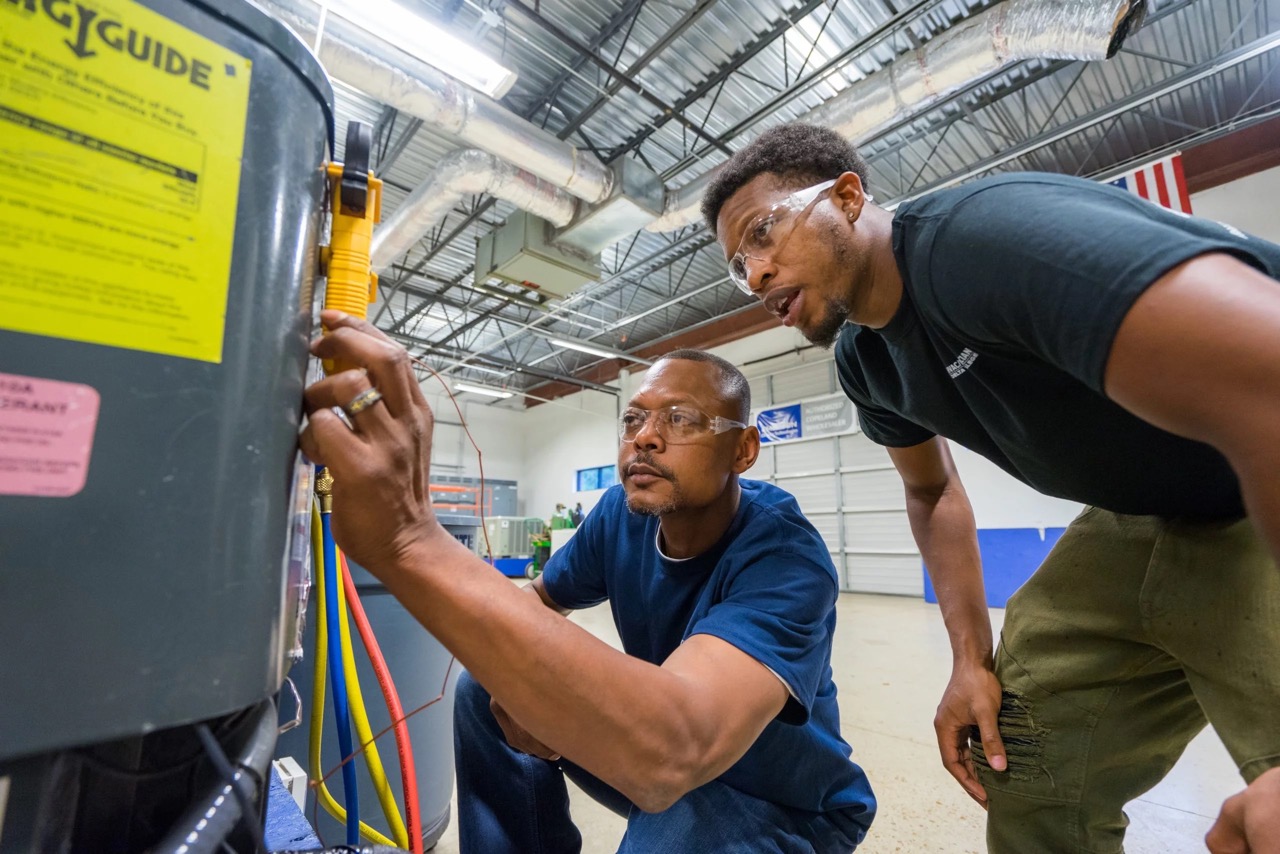

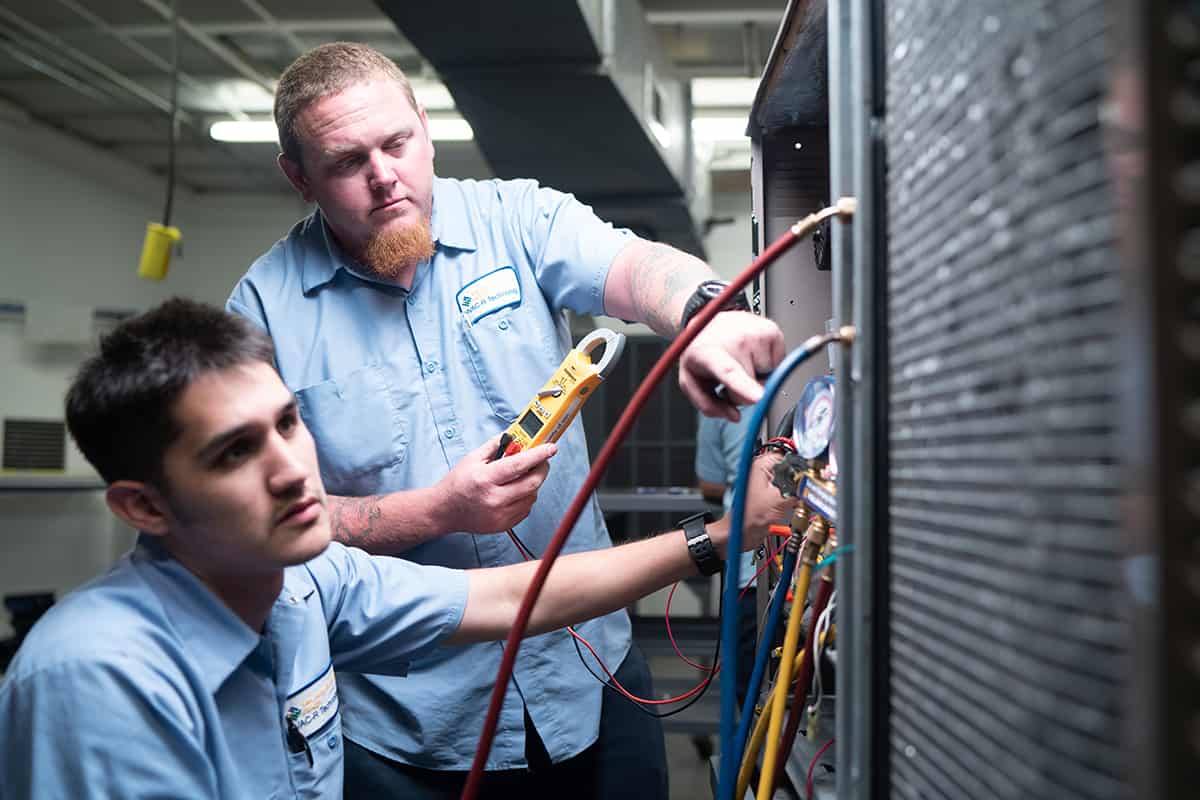
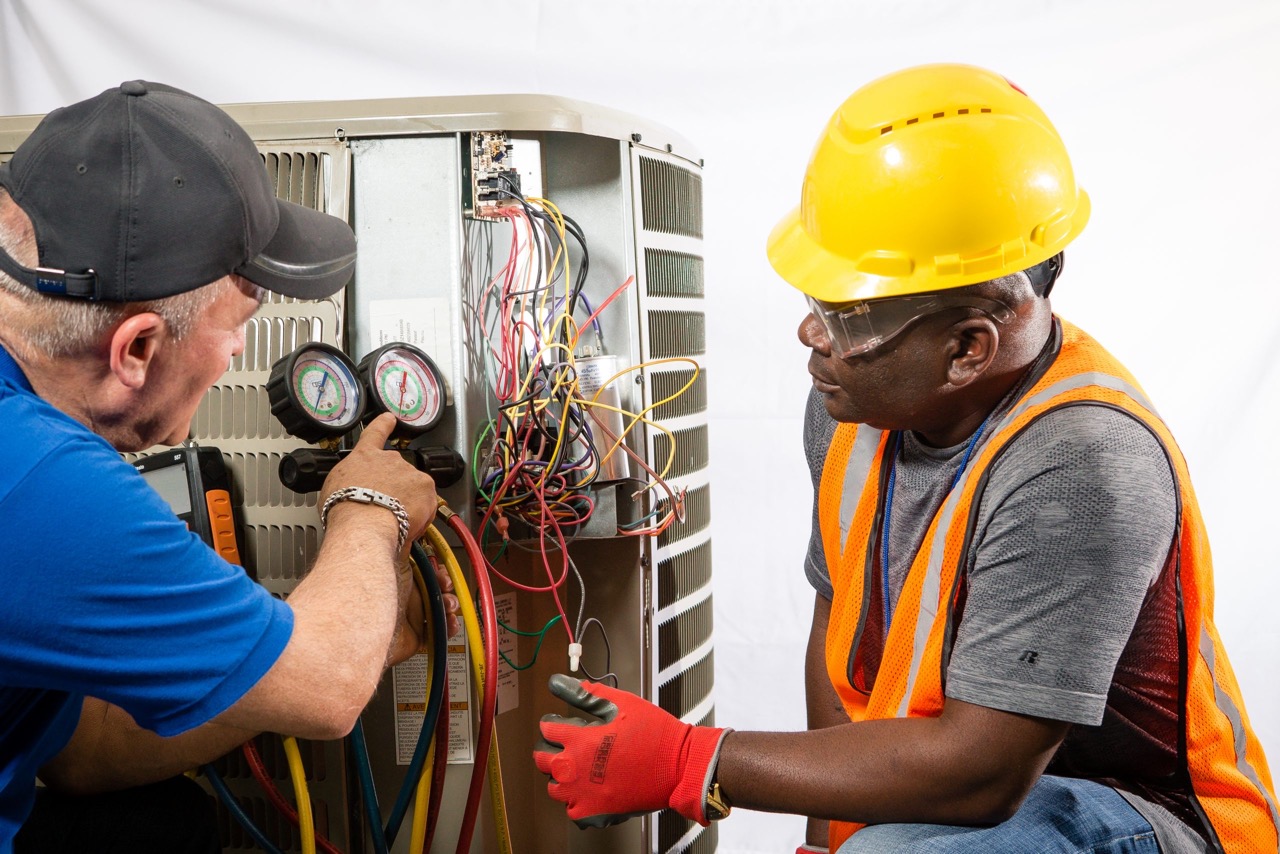

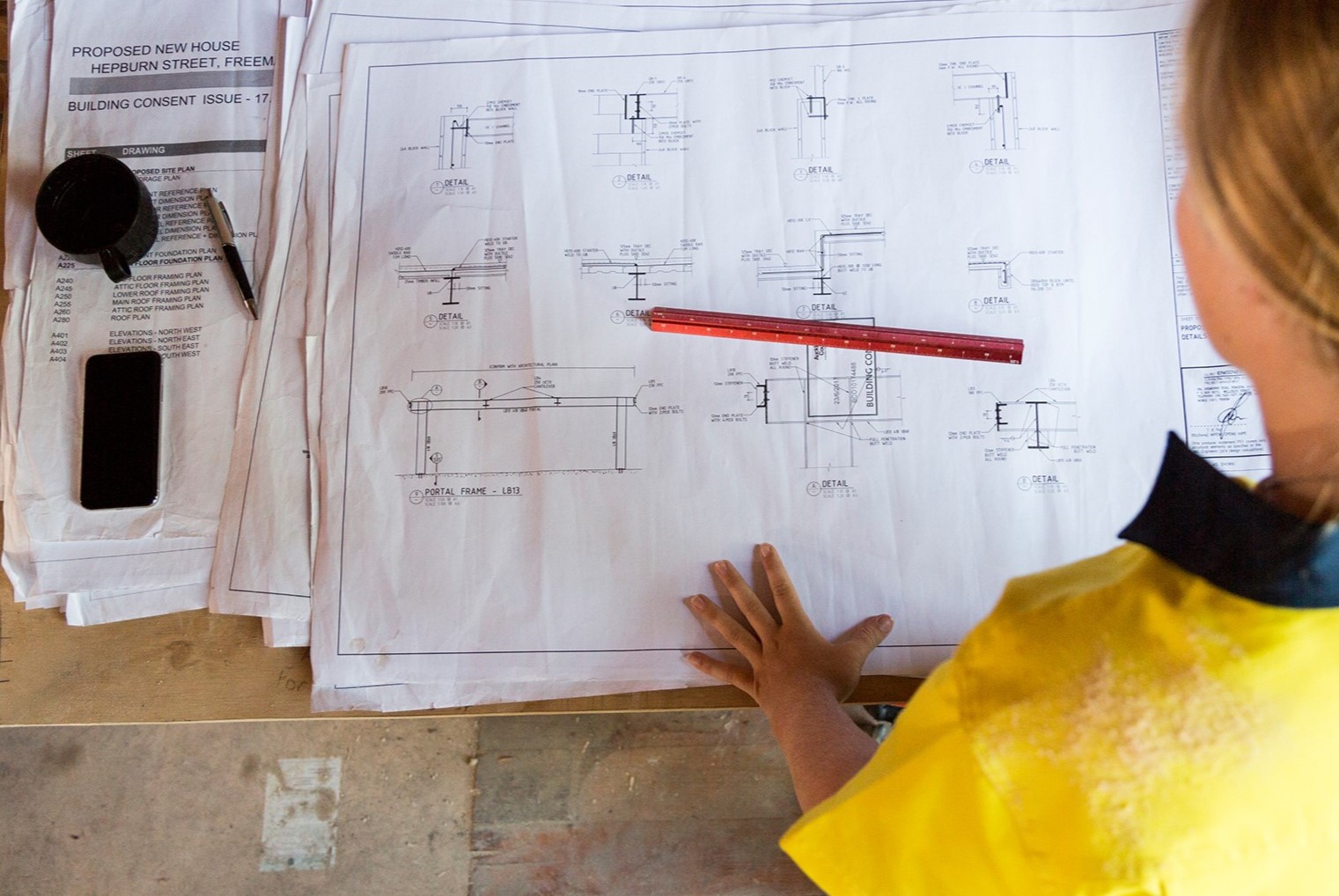

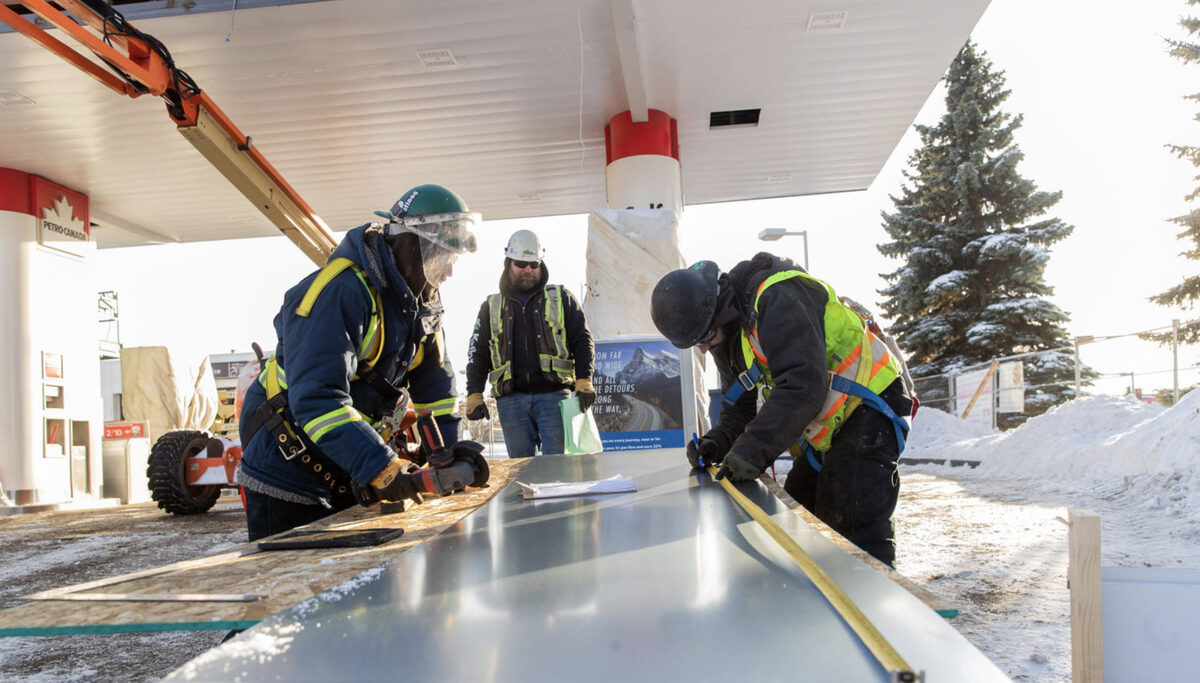





0 thoughts on “How To Become A HVAC Technician”